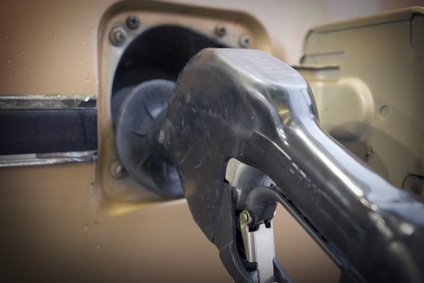
The catalytic converter is a component of the exhaust system and must be kept free-flowing to allow the easy passage of exhaust. When a converter becomes clogged with debris or are broken, the engine has to work much harder to accelerate and idle because the exhaust pressure is backing up in the pipe. This causes a highly erratic idle and or stalling and little or no power on acceleration, as well as higher engine temperatures. If your vehicle suddenly seems to lose more than half its power, the catalytic converter could be the culprit.
Because a clogged catalytic converter makes the engine work much harder, gas mileage can decrease substantially. With that much pressure in the exhaust, it is like the difference between blowing out of a drinking straw or a 2-inch pipe. When the catalytic converter is clogged, the engine is trying to force all the exhaust out of a much smaller hole, in essence, which adversely affects the miles per gallon the vehicle will achieve.
Many times a "clogged" catalytic converter is actually a broken one. Inside the unit, a honeycomb-like structure aids the converter in superheating the exhaust fumes, which cuts down significantly on emissions. Over time, this honeycomb structure can get brittle and crack or chunk off inside the unit, which will impede the flow of exhaust. For this reason, many times a clogged or broken catalytic converter will rattle or make vibrating noises when the engine is given gas. Sometimes a bad catalytic converter will rattle when shaken by hand--wait until the exhaust system cools to try this, because the converters get extremely hot.